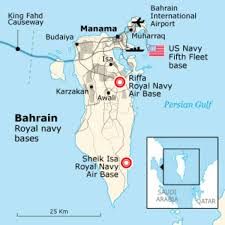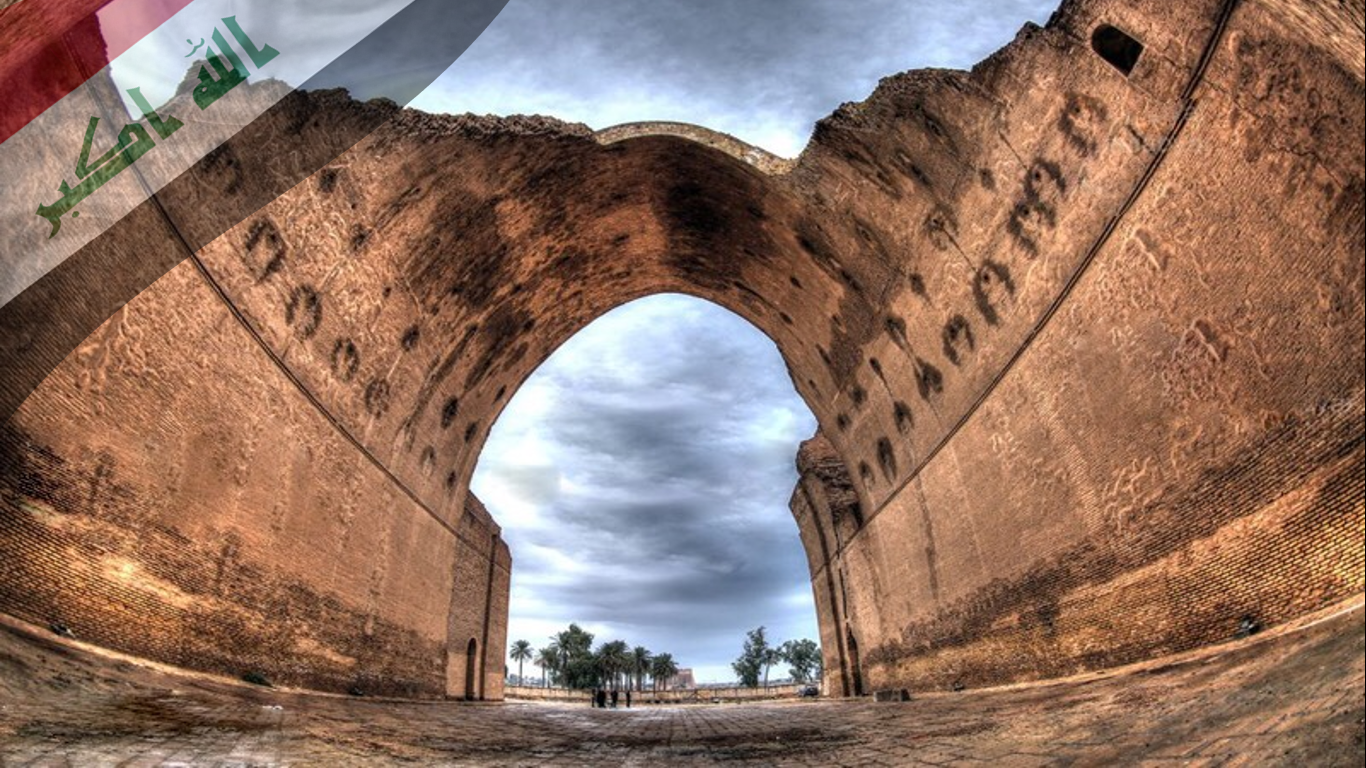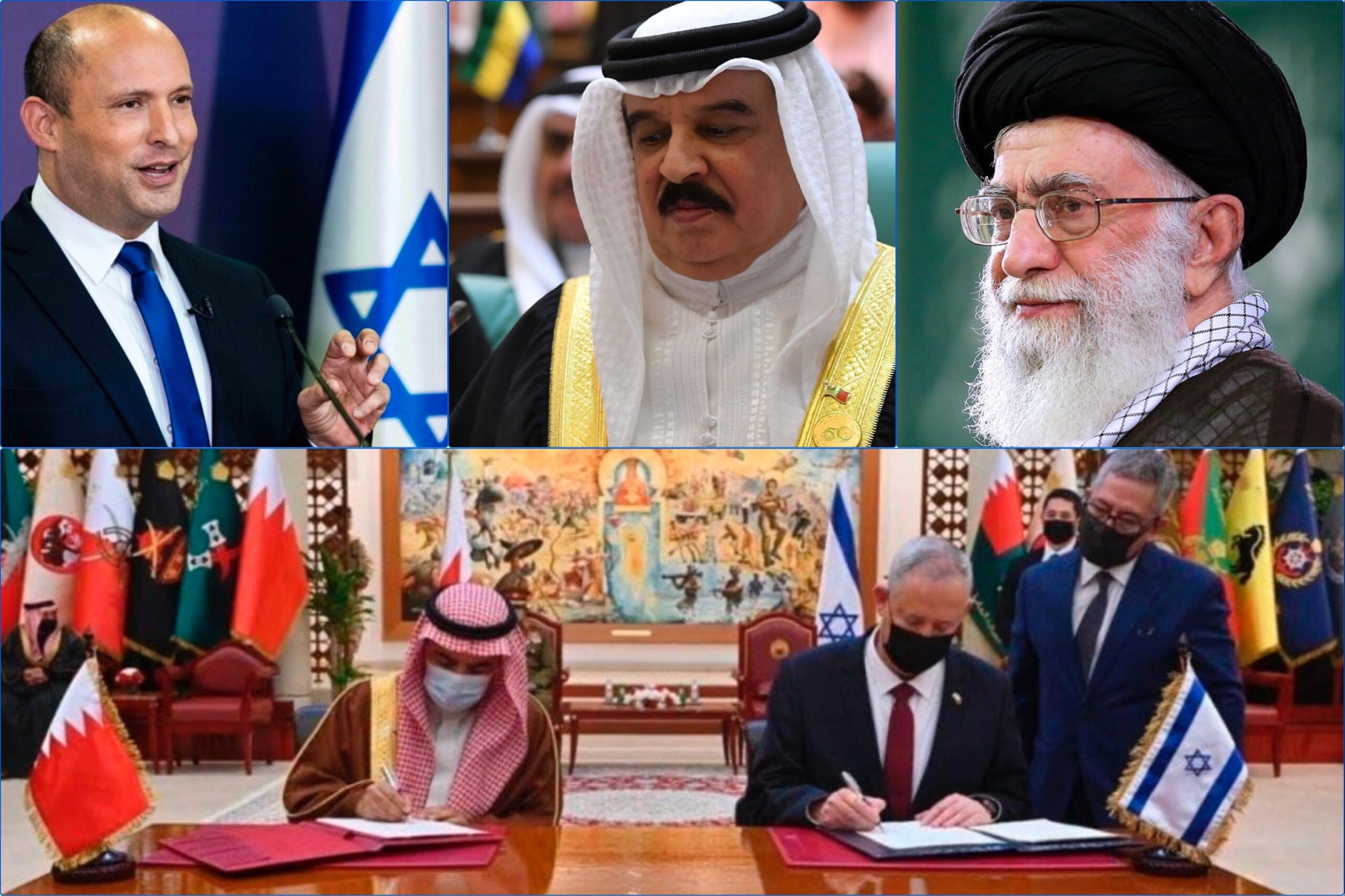On 2 February 2022 Israeli Defense Minister Benny Gantz arrived in Bahrain on a secret visit. Thought the main goal of the visit was initially kept secret, the Israeli media soon revealed had huge implications. For the first time ever, Israel appointed an army officer to an Arab country not only officially, but on a permanent basis. Though it is true that Tel Aviv has official relations with some Arab states for decades, and its ties with the Gulf states especially in the last few years is developing fast, never before such achievement was achieved. And in this regard Bahrain has a special significance.
This, however, is far from being a isolated event in the last few weeks. This very visit, while its main goal was still not officially announced, was widely placated as breakthrough, as the plane of the Israeli minister crossed the Saudi airspace. Such event had happened before, but was always kept secret and at least officially was denied by Riyadh. Not this time.
Also, this visit comes only after less than a week Israeli President Isaac Hercog visited the Emirates, also crossing the Saudi airspace. The visit by Hercog officially came as breakthrough event relaunching the warming Israeli-Emirati ties after a halt following Netanyahu’s removal from the scene. The warming Israeli-Emirati relations now come in the context of Abū Zabī’s growing complications in Yemen. Which also prompted increased American evolvement in the Gulf states security profile.
Despite the recently improving relations of Iran with its Gulf neighbors, these developments cast doubts how successful these initiatives are, or can be. These considerations undoubtedly centered around the war in Yemen and its possible outcome, after the forces of Sana’a recently carried out successful airstrikes against the Emirates.
The atmosphere is changing once again for the worse in the Gulf and Tehran has reasons to worry ahead of the next rounds of negotiations in Vienna with the Western states. But the Gulf-Israeli ties with all indications involved were not necessarily problematic for Iran. Until the last agreement with Bahrain, since this state has a number of special significance for all regional strategic considerations.
The new Israeli-Bahraini security agreement.
According to the news, which were so far only advertised by the Israeli media, by this new security agreement Israel and Bahrain will cooperate in all fields of security, and will exchange expertise. Considering such dealing are developing with the Emirates as well, and rumored to exist for long between Tel Aviv and a number of Gulf states for long, though on an unofficial fashion this step is not necessarily a game changer. Could be worrisome on its own, but not entirely new, or unexpected by Tehran.

Yet by the same source we also came to know that Israel will appoint in a permanent basis a liaison officer to Bahrain. The official duty of this officer, who shall be appointed by the Israeli navy, will be to act as an intermediary with the American fifth fleet. This American force is permanently centered in Bahrain, and that is the biggest military base of the U.S. navy in the region. For long this caused tension in the Iranian-Gulf relations. However, it should also be kept in mind that the biggest American airbase in the region is in Qatar, which did not prevent Tehran to act cordially with Doha, while it was under siege by its Gulf neighbors between 2017 and 2021. There are also other American bases in the Gulf in the Emirates and Saudi Arabia, which recently also embarked upon a reconciliation path with Iran, which was well received.
Having an Israeli liaison officer to the American fleet in Bahrain, however, is a major development, as it indicates Israeli preparations. In light of the still ongoing war of threats between Tel Aviv and Tehran, and that the timing sensitive for Iran right before the newest rounds of nuclear talks in Vienna this can be read as a sign of escalation by the Israeli leadership. And Iran is mindful of that.
It was also suggested, thought once again only by Israeli sources which can be part of scare tactics that the Israeli officer will also act as a liaison with the Bahraini armed forces. If that is true, and gains a permanent fashion developing in time, indeed Tel Aviv can be happy about this success. Because with American coordination the Israeli forces can plan both direct military and clandestine missions against the Persian state from close proximity. Much more than that, such missions can be carried out with few Iranian options to retaliate. This is further suggested by the same sources, claims that Israel aims to gain a naval base in the island kingdom either within the American base, or in its close proximity and also under its protection. Tehran might hit back – most likely covertly – to any such threat, but unlikely to risk open confrontation if such a step would involve the Americans. Especially now, as the nuclear negotiations are still promising. It would be imperative for Iran to undermine such Israeli-American-Bahraini cooperation to solidify, so time is a key factor now. Not only in regards to Bahrain, but also because if such ties become stable, it might become a model to be followed by other Gulf states as well. And it is not unfounded to suppose that the Saudi and Emirati blessing – given they expressed no objection – serve as a probing attempt, assessing the Iranian responses.
The most direct implications is that the Israeli political and military leadership is progressing on a path to have a hitting card against Iran, or even to fulfill its promises in the new future to carry out destructive strikes against Iran in the new future. This is to render all nuclear agreement impossible, or futile in Vienna, as Tel Aviv ran out of diplomatic options to undermine the negotiations. Yet it should be kept in mind that even if that is the real intention, such a maneuver is still in embryonic phase. This is not yet a shift in the strategic conditions in the Gulf, but for sure an alarming sign for Tehran. Which will surely not be underestimated.
A renewed American interest?
After the withdrawal from Afghanistan and the formal – though in reality very limited – withdrawal from Iraq many regional allies started to reevaluate their relations with Washington and their utter reliance on American protection. This trend was visible for years, as the U.S. focuses its attention more and more to counter China and Russia. That was a key factor in the Gulf states strategic consideration to open ties with Tel Aviv, to find an alternative security partner in the long run.
After the recent setbacks in Yemen and the sobering Yemeni strikes against the Emirates, however, America suddenly reappeared in the scene. Seeing the passivity with which Washington handled the similar strikes against Saudi Arabia, it is noticeable that soon after the Yemeni strikes the Americans promised to resupply the Emirates with developed Patriot and THAAD air defense missile systems. This was followed by vehement political statements both by the political and army leadership to support the Emirates and Saudi Arabia in their war in Yemen, and to guarantee their security. Such statements were heard before, but now the tone – directed against Iran as well – is different.
It might be just a smokescreen, but gives special weight to the suggestions about a possible Israeli military position in Bahrain.
Why Bahrain matters?
For a number of reasons that question can be asked: Why Bahrain? Why Bahrain is the testing ground of this Israeli-Gulf security cooperation with an obvious angle against Iran? Such step was expected by the Emirates since it normalization with Tel Aviv since September 2020. And especially now that the Emirates is suffering severe hits from Yemen, which can hardly be separated by the overall Saudi-Iranian conflict, it would not have been so surprising from Abū Zabī to take such a step.
We should remember here that the whole normalization process, which eventually bore fruit in mid-September 2020 with the Emirates and Bahrain being the first Gulf states to open diplomatic relations with Israel started in Bahrain. The path started with the Peace to Prosperity Workshop held in Bahrain in June 2019, where the infamous “deal of the century” was first suggested. Thought that initiative eventually failed, as we saw eventually yielded result by bringing the Gulf states close to Tel Aviv.
In this sense Bahrain is an ideal testing ground for all such sensitive political shifts. The kingdom is firmly under Saudi-Emirati influence since 2011, when a joint Saudi-Emirati military intervention crushed the uprising against the monarchy and solidified the Āl Halīfa royal family as a strong ally of Riyadh and Abū Zabī. Therefore all major foreign decisions are carefully controlled by the two mentioned “guardian states”. Yet at the same time Bahrain is a sovereign state, so in case major complications would arise, it is easier to backtrack for the Emirates and Saudi Arabia, denying any direct involvement. But if the step goes fine it can serve as an example to be followed at the right time.
Such role by Bahrain is not new, or unnatural, but Manama always kept a cautious track record under the tactical Prime Minister Halīfa ibn Salmān Āl Halīfa, the uncle of the current monarch King Ḥamad ibn ‘Īsa. Since his death in November 2020, Bahrain lost its strongman. The role of first man to the otherwise weak king was passed down to his son, Salmān ibn Ḥamad, a way less experienced man, who is also much closer to the Western partnership. Meaning since the gradual sidelining and death of the former strongman Halīfa ibn Salmān Bahrain is much less resistant to foreign pressure. And since in many ways Kuwait now also witnesses similar internal problems, it has fewer supporters to conduct a more self-centered foreign policy.
As we saw, Bahrain has a military significance as well, making it an ideal fertile ground for intimate American-Israeli-Gulf security cooperation. There are American bases in other Gulf states as well, that is true. Yet all other states, even those with open or secret relations with Tel Aviv now, would be more cautious to keep such ties and their security cooperation with the U.S. more separated, not to became overly dependent on American and Israeli decisions. Bahrain is now less capable of doing that. Furthermore, Bahrain is practically a small island kingdom, well isolated, and very close to Iran. Ideal for intensive cooperation.
Bahrain also has symbolic relevance in the Gulf-Iranian relations. Very few Arab states have a clear Shia majority. Bahrain is one, with where a big portion of the population is of Iranian ancestry. The ruling family and elite upon which its power is based, however, is not only clearly Arab, but also Sunni. This setup caused several internal conflicts in the past, as the leadership is weary of Iran and very close politically to the West and the other Gulf Arab states, while the population resonate much better with Iran. Also Iran has a historic claim over the island, which is not at all an official policy in Tehran, but surfaces even in the upper echelons of the Iranian political circles from time to time. Also further poising the relations between Manama and Tehran, which is possibly the worse bilateral tie in the whole Gulf.
So for several reasons it is not insignificant at all for Tehran what happens in Bahrain. And that makes Bahrain an ideal spot for provoking Iran, which Tel Aviv intends to do in any level now.
Is Iran listening?
Much of the current developments can be attributed to the rapid changes in Yemen. For some reason recently the Emirates returned to the scene actively after years of its official withdrawal. The same can be said about Egypt, though so far on a much more limited level. Tehran was surprisingly silent about these events so far and acted very restrained. This might be due to the latest warming and intensive security negotiations between Abū Zabī and Tehran, which Iran might not wish to jeopardize.
This restraint, however, seemed to come to the end, when the U.S. suddenly reappeared as a major security partner for the Emirates, vowing to defend it against the areal strikes from Yemen. Again, this might not change the equation much. The Emirates has had extensive security partnership with the U.S. for long. Also when Saudi Arabia started to suffer similar strikes from Yemen Washington did little more than promises and lucrative arms deals to protect it. But something changed.
Almost immediately after the latest American visits to Abū Zabī Iran not only warned that the U.S. might soon abandon the Gulf states, but in response to the latest threats revealed a new long-range ballistic missile, symbolically names “Haybar Šekan”, meaning Haybar Crushing. Which is an indication to Israel, as in the time of the Prophet Haybar Oasis became famous for its Jewish population. This message was not hidden at all, and was also claimed that the new armament is specifically designed to penetrate missile defense systems. What further suggest that Tehran is aware of the recent steps is that Iranian head of state Ayatollah Hāmeneī recently stated publicly that “hybrid countermeasures must be used against enemy’s multi-pronged invasion”. Also saying: “In the face of such joint aggression, we cannot constantly remain in a defensive position and must mount an intensive and vigorous campaign in various fields…”
What can be understood from this is that while Tehran is in need of calm, as the negotiations in Vienna continue, and also does not want to harm the reconciliation attempts with the Emirates and the Saudi Arabia, it is mindful about the developments. And warns about retaliation.
In light of this and the recently changing tone in Riyadh tension is growing once again. Whether it will lead to further escalation is dependent of three key factors. The course the war in Yemen is taking, the results of the nuclear negotiations in Vienna and the success of the Israeli attempts in the Gulf.


